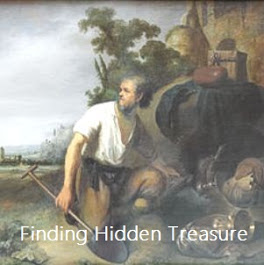The Weight of Glory
 Recently, I have run across a number of references to an essay (actually originally composed as a sermon) by C.S. Lewis written in the early 1940's. I took the time to read it about a month ago. C.S. Lewis had some profound insights into how we humans are anything but ordinary.
Recently, I have run across a number of references to an essay (actually originally composed as a sermon) by C.S. Lewis written in the early 1940's. I took the time to read it about a month ago. C.S. Lewis had some profound insights into how we humans are anything but ordinary. I was especially moved to post about this after reading my son's Facebook post from yesterday in which he (independent of my prompting, I think) came across an extended quote from Weight of Glory. With all of these "co-incidences" in which I keep running into references to this essay, I must conclude that "coincidences take a lot of planning"... planning on God's part that is. I have needed to read this essay for a reason. So, here is a link to the essay in pdf form.
I conclude with a quote from the essay:
It may be possible for each to think too much of his own potential glory hereafter; it is hardly possible for him to think too often or too deeply about that of his neighbour. The load, or weight, or burden of my neighbour’s glory should be laid daily on my back, a load so heavy that only humility can carry it, and the backs of the proud will be broken. It is a serious thing to live in a society of possible gods and goddesses, to remember that the dullest and most uninteresting person you talk to may one day be a creature which, if you saw it now, you would be strongly tempted to worship, or else a horror and a corruption such as you now meet, if at all, only in a nightmare. All day long we are, in some degree, helping each other to one or other of these destinations. It is in the light of these overwhelming possibilities, it is with the awe and the circumspection proper to them, that we should conduct all our dealings with one another, all friendships, all loves, all play, all politics. There are no ordinary people. You have never talked to a mere mortal. Nations, cultures, arts, civilization—these are mortal, and their life is to ours as the life of a gnat. But it is immortals whom we joke with, work with, marry, snub, and exploit—immortal horrors or everlasting splendours.

